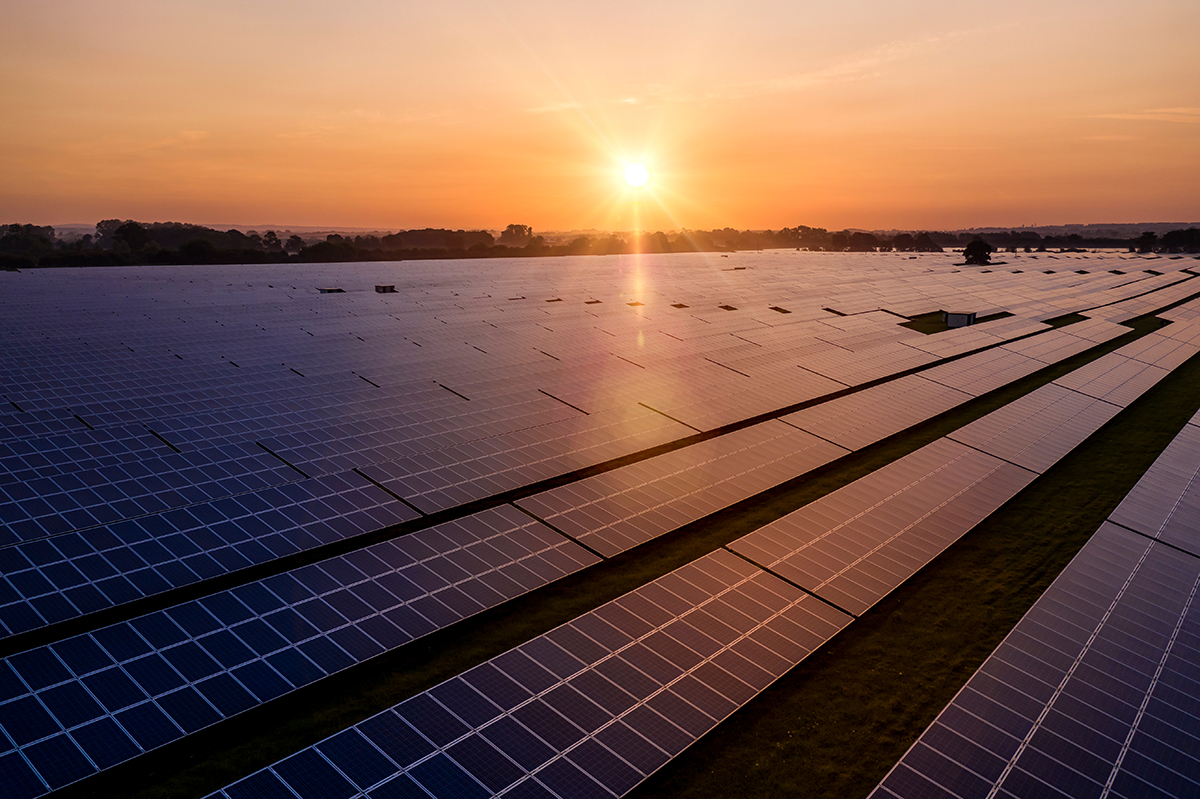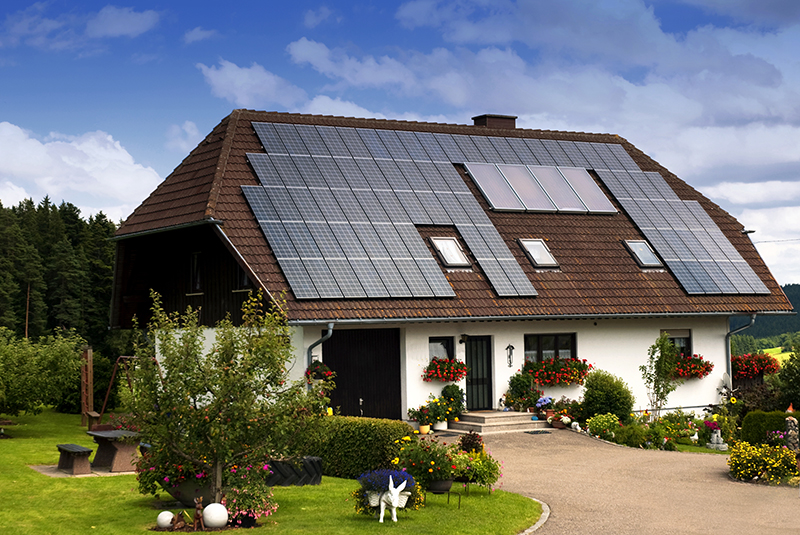Solar Energy

Published: Friday, 09 June 2023
One of the most commonly known types of renewable energy, solar energy is one of the world’s leading strategies as we push for carbon neutral. Solar energy is mainly used in our homes to generate electricity which can be used for heating also. In this article, we will be looking at what solar energy is, how it works, and the advantages and disadvantages that come with it.
What is solar energy?
Solar energy comes from radiant light which we harness by using a range of technologies to generate electricity, solar thermal energy, and solar architecture. Solar power is the main technology we use to convert the radiant energy into electricity.
How it works.
In comparison to most renewable energies, solar energy doesn’t use a motor to generate its electricity. To convert solar power into electricity we need to use solar panels to first absorb the radiant light that that is reaching the planet. The photons that come from the light will hit solar panel and will knock the electrons free that are in the solar panel which will then create and electric current which will then convert the Direct Current (DC) to Alternating Content (AC) which can then be used to provide electricity to your home. Although this example is for home solar panels, solar farms also work the same except instead of the energy going directly to your home, it will first go to the grid.
Solar panels
The main technology we use to absorb solar energy are solar panels. To absorb enough solar energy to power our homes, we need a lot of solar panels. A photovoltaic (PV) system is mainly used in 2 ways; a home system where the solar energy you create will be used for your home, or solar farms which will generate power for multiple homes. Each solar panel is built into 5 pieces: Rear contact, P-type silicon, N-type silicon, front contact, and the glass cover and anti-reflective coating. Each part of the solar panel helps in the process of how we generate electricity from solar panels.

Advantages
Solar energy is a power source that is constantly improving. With new technologies being put in place, solar could be one of the leading renewable energy sources for the future. With this energy source comes a variety of advantages that shows us why the government is wanting to implement solar energy systems for the future. Here are just a few examples.
Abundant
Solar energy is the most readily available energy source on the planet. In theory, with the advancement of solar technology we could solely rely on solar energy to provide us with power for the rest of human existence. This alone shows the potential range that solar power has to offer for us to future proof our energy sources. There is also evidence to suggest that an hour and a half of sunlight from a day could in theory generate enough power to meet our energy needs for a whole year, but we are currently unable to gather that energy.
Solar technologies
With each new iteration of solar technologies, see us increasing the efficiency of these products. With the new implementation of adding battery storage into our PV systems, sees us being able to store energy generated throughout the day, and use it during the night, when solar energy isn’t available. Constant changes are happening which shows the progression that solar energy can take in the future, regarding how much power we get during the day, if we are fully able to gather and store that power could lead us to never having to rely on other power sources again however, it is important to be aware that we are still many years away from that.
Home value
More of a personal benefit but having a PV system at your home could see the value of your home increase. With all new builds currently being built with a PV system installed, it looks like the government might start to put more of a focus on solar energy in the coming years. With this change being put in place, having solar panels could see an overall increase to your house value in comparison to your neighbours without. It might also give you the edge as more and more people are looking to be more sustainable, and PV systems do just that.
Disadvantages
Although solar energy comes with a variety of advantages, it is important to identify the disadvantages that are holding back from the government and individuals from moving to PV systems as knowing these issues will help us to solve them in the future.
Aesthetics
Some people are not very fond of the overall design of solar panels whether they are placed on roofs or a solar farm. For solar farms, they believe they are damaging the natural aesthetic of the countryside as they take up a lot of space to have solar farms that would generate enough electricity for it to be worthwhile. For home PV systems, people think that current PV systems stand out and take away from other aspects of your home. A way people have started to solve this issue is by integrating the solar panels into the roof itself, this makes the solar panels look more natural as they no longer sit on top of the roof tiles.
Weather dependent
Although still able to generate electricity during non-sunny days, how effective your solar PV system is, relies on what the weather is like throughout the day. Countries where their weather changes from day to day, makes solar PV systems not the most ideal type of energy generation. However, with the battery storage technology coming to PV systems, there are solutions being created to help deal with this issue.
Affordability
Although long term, a PV system can help you save money on your electricity bill, the initial investment is high. With the initial cost being quite high, it is important to know all the information regarding a PV system before you make the final decision. Companies and Governments are implementing incentives and rewards systems in place for people who decide to go with a PV system to give users more of an incentive to go with the renewable source of energy.
With the potential and power that the sun has to offer, it's safe to assume solar energy is going to be at the forefront of our strategies as we aim for carbon neutral. Being aware of the advantages and disadvantages helps us in making the right steps possible for us to futureproof our PV systems.
To learn about the other types of renewable energy you can check out our article here.
To learn more about specific renewable energies you can find them here.

